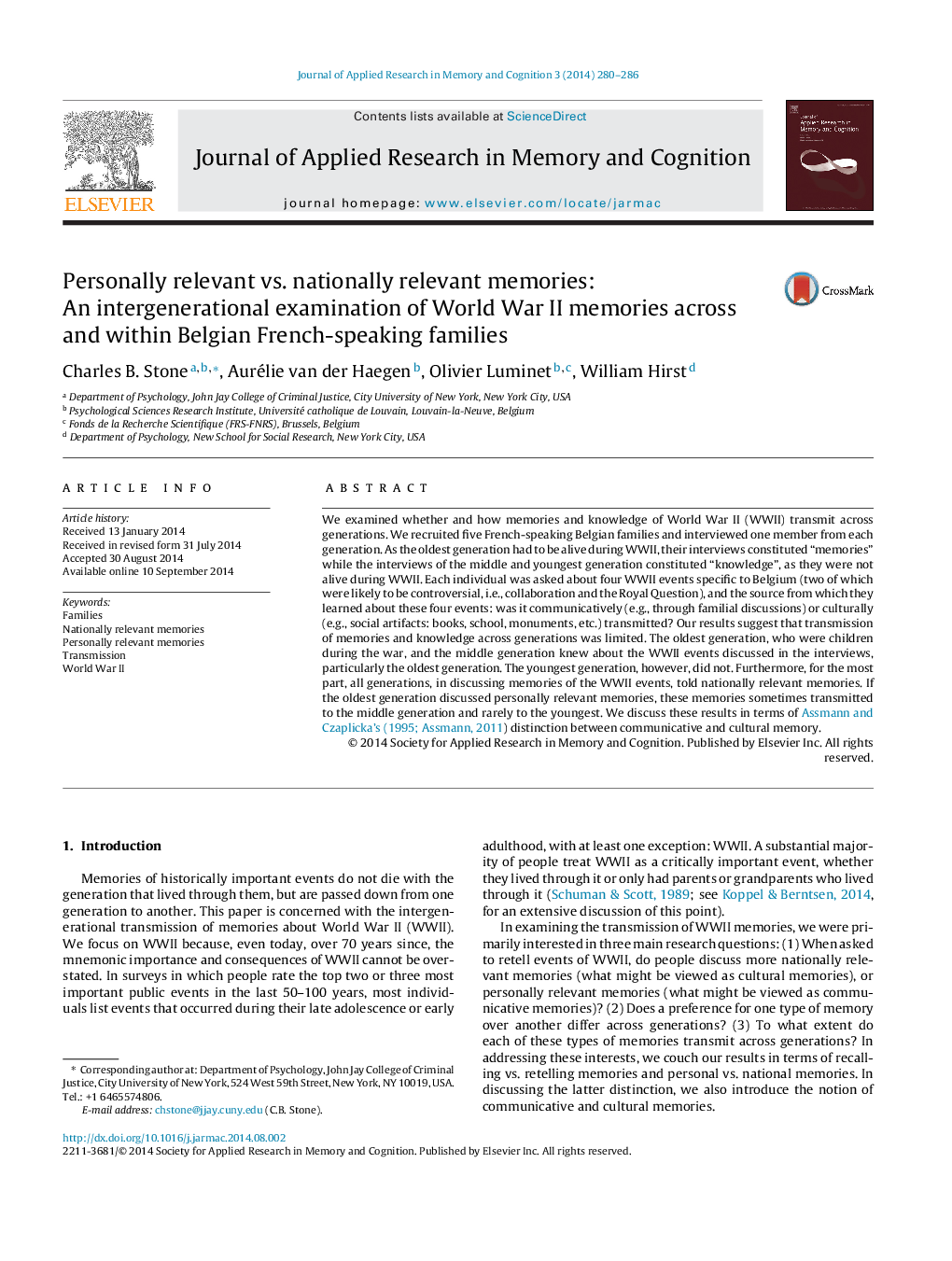| Article ID | Journal | Published Year | Pages | File Type |
|---|---|---|---|---|
| 881677 | Journal of Applied Research in Memory and Cognition | 2014 | 7 Pages |
•Nationally relevant memories greatly shape the way individuals remember WWII.•The generation alive during WWII (OG) retells mostly nationally relevant memories.•The transmission of personally relevant WWII memories is extremely limited.•The youngest generation is largely unable to retell any information about WWII.
We examined whether and how memories and knowledge of World War II (WWII) transmit across generations. We recruited five French-speaking Belgian families and interviewed one member from each generation. As the oldest generation had to be alive during WWII, their interviews constituted “memories” while the interviews of the middle and youngest generation constituted “knowledge”, as they were not alive during WWII. Each individual was asked about four WWII events specific to Belgium (two of which were likely to be controversial, i.e., collaboration and the Royal Question), and the source from which they learned about these four events: was it communicatively (e.g., through familial discussions) or culturally (e.g., social artifacts: books, school, monuments, etc.) transmitted? Our results suggest that transmission of memories and knowledge across generations was limited. The oldest generation, who were children during the war, and the middle generation knew about the WWII events discussed in the interviews, particularly the oldest generation. The youngest generation, however, did not. Furthermore, for the most part, all generations, in discussing memories of the WWII events, told nationally relevant memories. If the oldest generation discussed personally relevant memories, these memories sometimes transmitted to the middle generation and rarely to the youngest. We discuss these results in terms of Assmann and Czaplicka, 1995 and Assmann, 2011) distinction between communicative and cultural memory.
